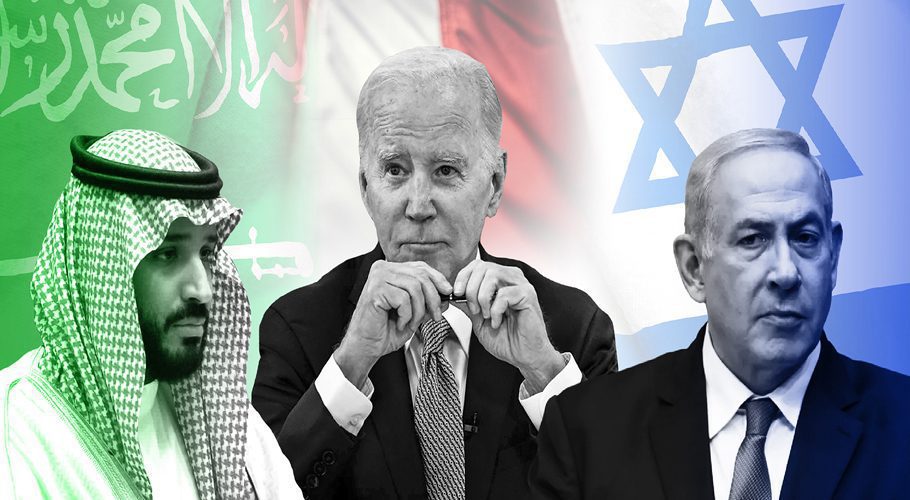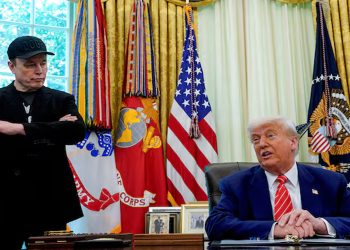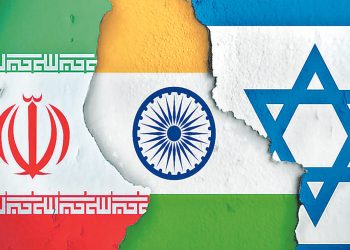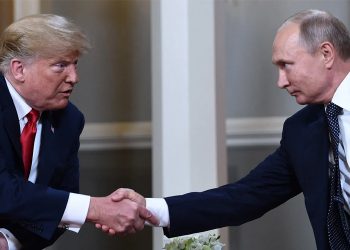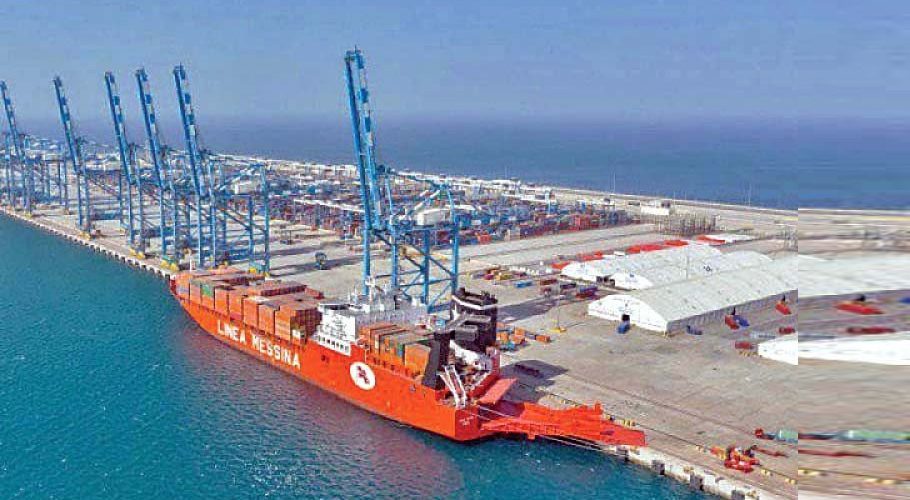Not long ago Israeli Prime Minister Benjamin Netanyahu, during a visit to the White House, had said that “historic peace between Israel and Saudi Arabia” was within reach — a diplomatic advance that he predicted could lead to lasting peace between the Israelis and Palestinians.
Now, the United States’ years-long, country-by-country diplomatic effort to normalize relations between Israel and its Arab neighbors is in danger of being delayed or derailed by the onset of war between Israel and the Palestinians.
The so-called normalization push, which began under former President Donald Trump’s administration and was branded as the Abraham Accords, is an ambitious effort to reshape the region and boost Israel’s standing in historic ways. But critics have warned that it skips past Palestinian demands for statehood.
The establishment of diplomatic ties between Israel and Saudi Arabia’s opponents, according to Secretary of State Antony Blinken, may have been the most ambitious goal of the United States in this campaign.
Biden, Netanyahu, and the Saudi Crown Prince Mohammed bin Salman would all consider such an agreement between Jerusalem and Riyadh to be a career-defining accomplishment. It is one that might make it possible for additional Arab and Muslim-majority countries to end their opposition to Israel since it was founded in 1948 on territory long occupied by Palestinians. United Arab Emirates, Bahrain, and Morocco all endorsed normalization pacts with Israel under Trump.
But the startling attack by Hamas — and much of the Arab world’s response to it — has also raised new questions about whether Palestinian ambitions for sovereignty can be put aside while the U.S. tries to help Israel move ahead with improving relations with the rest of its Middle East neighbors.
With Netanyahu vowing to turn all Hamas hideouts in Gaza into rubble, the region is now bracing for even more death and destruction and an expansive military operation by Israel. Biden is set to address the attacks on Israel in a White House speech on Tuesday afternoon.
“We’re going to see a rather significant operation from air, land and sea that costs many, many, many lives,” said Steven Cook, a senior fellow for Middle East and Africa Studies at the Council on Foreign Relations. “I think this dynamic of normalization will likely slow down or come to a halt, at least for a period of time.”
The attacks were a shock to American, Israeli and Saudis officials, who all were riding high on the prospect that an Israeli-Saudi agreement was starting to come into focus.
Netanyahu, in a CNN interview last month, called the potential pact “a quantum leap” for the region. The Saudi crown prince also noted the steady progress, telling Fox News Channel, “every day we get closer.”
In a matter of days, that optimism has vanished.
Social media showed crowds take to the streets with Palestinian flags in Lebanon, Bahrain, Kuwait and elsewhere in the hours after the Hamas attack.
Saudi Arabia’s foreign ministry in a statement noted that it had repeatedly warned that Israel’s “occupation, the deprivation of the Palestinian people of their legitimate rights, and the repetition of systematic provocations” led to this moment.
White House National Security Council spokesman John Kirby declined to comment on the Saudi response.
Yousef Munayyer, who heads the Palestine-Israel program at the Arab Center, a Washington think tank, said the Saudis in their statement were reminding the administration that “we’ve been telling you guys over and over again that if you ignore the Palestine issue the region’s going to explode. And I think there’s just been a tremendous amount of hubris on the part of the Biden administration thinking they could do that.”
To be certain, Biden and U.S. officials have privately made clear to Netanyahu that any deal needed to include significant concessions for Palestinians, although members of Netanyahu’s far-right coalition have made clear that an independent Palestinian state is not something they’d abide.
The Saudis had said they, too, expected Israel to make concessions. Saudi Foreign Minister Prince Faisal bin Farhan said “there is no other way” to solve the conflict than by establishing a Palestinian state.
Other allies in the region had also underscored that Palestinian concerns could not be overlooked.
King Abdullah II of Jordan, whose country in the early 1990s became the second Arab nation after Egypt to sign a peace deal with Israel, told a global summit last month that the prospect of a normalization deal between Saudi Arabia and Israel offered promise for the Middle East but no guarantee of stability in itself.
“This belief, by some in the region, that you can parachute over Palestine, deal with the Arabs and work your way back — that does not work,” the Jordanian king said then. “And even those countries that have Abraham Accords with Israel have difficulty moving publicly on those issues when Israelis and Palestinians are dying. So unless we solve this problem, there will never be a true peace.”







